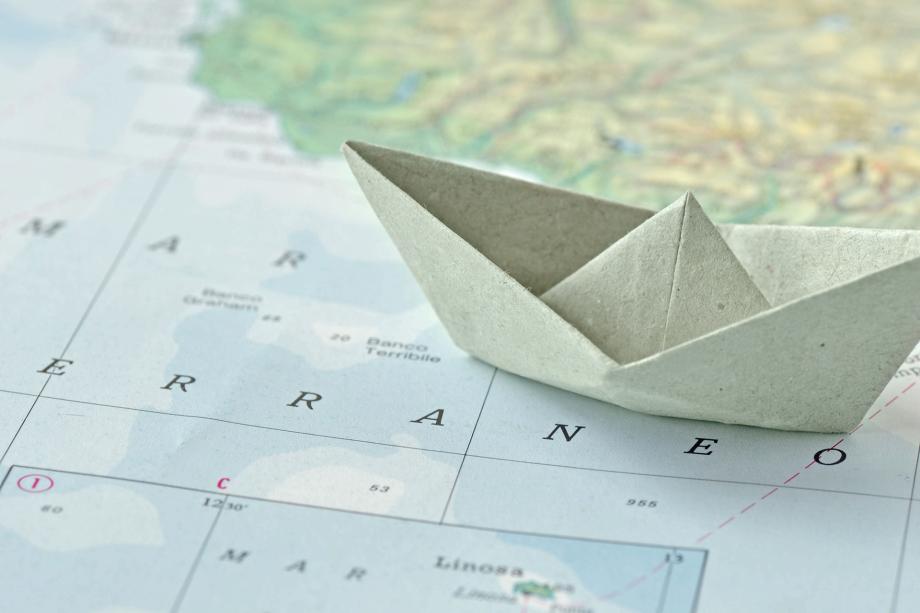Italy’s Migration Policies at a Turning Point

There can be no doubt that Italy’s political landscape experienced a seismic shift in June. The current prime minister Giuseppe Conte came to power thanks to an unusual coalition between the Lega Nord (LN) and Five Star Movement (M5S). It’s a partnership that would have been difficult to imagine just a few months ago, given the social, economic and political differences between all parties concerned. Yet what’s really captured the imagination of the Italian public is, that despite being the junior partner in the new government, the LN has been more active than MS5, the victors in this summer’s elections.
This is due in no small part to Matteo Salvini, leader of the LN, Minister of the Interior and Deputy Prime Minister. During public and television debates, Salvini struck a chord with many Italian voters and is now widely regarded as the main personality of the new administration. This has also benefitted his party’s stance on migration.
Words Have Consequences
Matteo Salvini’s strategy for tackling Italy’s migration challenge is simple and reflected in comments made during a recent interview. As he sees it, ‘’only those who are allowed to enter’’ should cross Italy’s and Europe’s borders. Under Salvini’s watch, the country has largely closed its ports to migrant vessels and is pushing EU member states to more equally share the burden of handling newcomers.
It’s a stance that he believes is already paying dividends. Data suggests that less than 5,000 migrants arrived in Italy in June and July, down from the 30,000+ that made the corresponding journey the previous year. In addition, France, Germany, Malta, Spain and Portugal have recently agreed to take 50 people each from boats docking at Italian ports with 450 migrants on board.
Salvini has been known to supplement his rhetoric with some questionable statistics. He has stated, for example, that migrants account for a third of the 2100 crimes recorded in Italy each day. This has prompted some observers to label migration as the country’s main internal security threat. It remains to be seen where Salvini obtained such figures. More worrying statistics have come from the National Office for Racial Anti-Discrimination (UNAR) and Observatory for Security Against Discriminatory Acts of Criminal Police (OSCAD). Both organisations warn that episodes of violence against people of African origin have dramatically increased in recent months.
This hasn’t stopped Salvini’s policies from receiving praise from the likes of US President Donald Trump. In a recent meeting with Italian Prime Minister Giuseppe Conte he expressed his absolute support for Italy’s approach to legal and illegal immigration. Salvini’s rhetoric also resonates with messages coming from Europe’s other migration hardliners, such as Hungary’s Viktor Orban.
Concerning Shared Concerns
Italy’s current president Sergio Mattarella has a noticeably more moderate approach to migration than Salvini. He outlined his approach to the relocation of migrants during a speech to mark the world day against human trafficking. Assuming that in a united Europe should help its constituent parts to solve common problems, he argued that “no country is immune from this systematic breach of human dignity that calls the responsibility of the international community in its entirety, shunting the temptation to look elsewhere”.
These words could easily have been addressed to Central and Eastern Europe’s Visegrad Group (V4), a regional bloc that has consistently reaffirmed its stance of limiting migration into their own countries. The V4’s opposition to relocation quotas almost certainly ensured that it would not be invited to the recent “migration mini-summit” organised by Germany and led by the European Commission’s President Jean-Claude Juncker (ahead of the heated European Council Summit in June).
President Mattarella’s interventions aside, there are nevertheless convergences between Italy’s and the V4’s approaches to migration. For instance, both parties are adamant that Europe’s borders should be closed to migrants and all boats should be turned away from the continent’s ports. The added bonus, or so the argument goes, is that there will be no unfortunate deaths at sea and human traffickers would lose a lucrative source of income. What this argument overlooks, however, is that not all EU member states view the migration issue through the same no-nonsense lenses. Italy’s and the V4’s stubbornness on a shared European issue is troubling, to say the least.
Time for Change
Things must, of course, change. The international community needs to better understand why Matteo Salvini’s hard line approach to migration has gained traction among ordinary Italians. Observers will find that most citizens are not insensitive to the deaths of migrants at sea. However, many are adamant that the country cannot face the migration crisis alone. Italy’s new migration policies can thus be viewed as a cry for help and a call to the EU to change its current thinking. What’s required is a more balanced, Europe-wide approach in which there are no winners or losers.
Getting it right in Italy matters. As things stand, the country is home to Europe’s fourth largest economy, its fifth biggest population, not to mention being one of the founding members of the EU. It has also fallen under the influence of populist politicians that use the migration issue to support arguments that the security and cohesion of western societies is under threat like never before.
Time is not necessarily on the EU’s side. Aside from Brexit, next year also sees European Parliament elections and a new European Commission. The prospect of new faces that identify with populist rhetoric entering office should not be downplayed. They will almost certainly ensure that immigration remains a major talking point on the international agenda.
Mattia Antonioli was a summer 2018 intern at GLOBSEC. He holds a BA in Political Science and International Relations from Università Cattolica del Sacro Cuore, Milan, and is currently pursuing postgraduate studies at the Alta Scuola di Economia e Relazioni Internazionali (ASERI). The views expressed are his own.